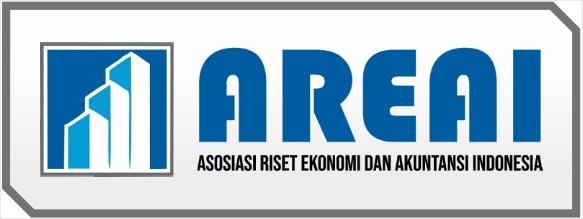Evaluation Of Tax Incentive Policy For MSMEs In The Context Of National Economic Recovery At Tanjung Priok Small Tax Office In 2021
DOI:
https://doi.org/10.61194/economics.v1i1.28Keywords:
Evaluation, Tax Incentives, MSME, National Economic RecoveryAbstract
The purpose of this study was to evaluate the policy issued by the government regarding MSME Tax Incentives during the pandemic based on PMK Number 44 of 2020 at Tanjung Priok Small Tax Office Jakarta in the context of National Economic Recovery. The type of study used was a qualitative approach, where the researcher described the results of interviews and analyzed the data obtained in the field. This study was conducted from February to July 2022. The results of this study showed that the taxpayers enthusiastically welcome the policy issued by the government regarding MSME Tax Incentives. However, there are still taxpayers who do not know or have a lack understanding of the policies applied in their tax obligations on this tax incentive, therefore the taxpayers hope to get more detailed information and guidance for this policy
References
Mardiasmo. Taxation Latest Edition 2018. Andi : Yogyakarta. 2018.
Setianto. E-Commerce Statistics 2020. Central Bureau of Statistics: Jakarta. 2020
Raco J. Qualitative Research Methods: Types, Characteristics and Advantages. Grasindo : Jakarta. 2018
Nugroho R. Public Policy: Public Policy Analysis. Elex Media Computerindo. April 2021
Cahyani L.P.G, Noviari N. Effect of Tax Rates, Tax Understanding, and Tax Sanctions on MSME Taxpayer Compliance. E-Journal of Accounting. Udayana University. Bali. ISSN : 2302-8556. Vol 26 No. 3, March 2019.
Riyadi I, Sudjana U, Cahyadini A. The National Payment Gateway (GPN) as an Instrument in Optimizing Withdrawal of Income Tax (PPh) in E-Commerce Transactions. Kyadiren Law Science Journal. E-ISSN 2715-5038. Padjadjaran University. Bandung. 2020.
Suci Y.R. 2017. Development of MSMEs (Micro, Small and Medium Enterprises) in Indonesia. Cano Ekonomos Scientific Journal. STIE Balikpapan. Balikpapan. ISSN : 2301-9506. Vol 6 No. 1, 2017.
Sukarno, Wifasari S, Setyawan B. 2019. Efforts to Increase Tax Revenue Through E-Commerce Free Sales at MSMEs in South Tangerang City. Journal of Management Partners. Banten. ISNN : 2614-0365. Vol. 3 No. 9, 2019.
Wardani D.K, Rahayu P. The Influence of E-Commerce, Tax Rates on Tax Evasion. Journal of Accounting & Economics. Tamansiswa Undergraduate University. Yogyakarta. ISSN 2541-0180. Vol 5 No. 1, March 2020.
V. Meiriasari, M. Ratu, A. Putri. Training on the Utilization of Tax Incentives for MSMEs During the Covid-19 Pandemic. Journal of Progressive Community Service. Indo Global Mandiri University. Palembang. ISSN 2614-5251. Vol 5 No. 1, 2021.
E. Vogler. Effect of Tax Incentives, Tax Socialization and Self Assessment System on MSME Taxpayer Compliance During the Covid-19 Pandemic. Indonesian Scientific Journal. Brawijaya University. Poor. ISSN 2541-0849. Vol 6 No. 12, 2016.
M. Indriana, N. Moh. Faisol. N. MSME tax rate of 0.5%: Reward or Punishment? MSME Tax Rates 0, 5%: Reward Or Punishment ?. Journal of Business and Accounting. Wiraraja University. Madura. URL https://doi.org/10.21107/infestasi.v16i1.6986. Vol 16 No. 1, 2020.
S. Latief, Junaidin Zakaria, Mapparenta. The influence of trust in the government, tax incentive policies and tax benefits on taxpayer compliance. Journal of Accounting and Tax Analysis. Muslim University. South Sulawesi. ISSN 2621-8194. Vol 3 No. 3, 2020.
D. Syanti, Widyasari, Nataherwin. Effect of Tax Incentives, Tax Rates, Tax Sanctions and Tax Services on Taxpayer Compliance During the Covid-19 Pandemic. Journal of Economics and Management. Tarumanegara University. ISSN 2252-6226. Vol 9 No. 2, 2020.
Lahay. A.P, Kantohe M, Marunduh P.A. Analysis of the Application of Tax Incentives for MSME Taxpayers Affected by Covid-19 in the City of Manado. Manado Accounting Journal. Manado State University. ISSN 2774-6976. Vol 3 No. 1, 2022.
Official. S, Barmawi. M.M. Utilization of Tax Incentives for MSMEs During the Covid 19 Pandemic. Journal of Mandiri Mandiri. STIM YKPN Yogyakarta. ISSN 2685-8398. Vol 4 No. 1, 2022.
Marlina Lili. Utilizing MSME Tax Incentives in an Effort to Encourage National Economic Recovery. Journal of IKRA-ITH Economics. Bina Facility Informatics University. Vol 4 No. 2, 2021.
Mariana Lina. Evaluation of MSME Taxpayer Compliance Level at KPP Pratama West Makassar. Journal of Accounting Science. Makassar National Informatics Polytechnic. ISSN 2714-6340 Vol 2 No. 1, 2020.
Basten, C., von Ehrlich, M., & Lassmann, A. (2017). Income Taxes, Sorting and the Costs of Housing: Evidence from Municipal Boundaries in Switzerland. Economic Journal, 127(601), 653–687. https://doi.org/10.1111/ecoj.12489
Cnossen, S. (2018). Corporation taxes in the European Union: Slowly moving toward comprehensive business income taxation? International Tax and Public Finance, 25(3), 808–840. https://doi.org/10.1007/s10797-017-9471-2
Dinica, V. (2017). Tourism concessions in National Parks: neo-liberal governance experiments for a Conservation Economy in New Zealand. Journal of Sustainable Tourism, 25(12), 1811–1829. https://doi.org/10.1080/09669582.2015.1115512
Doussantousse, S., Sakounnavong, B., & Patterson, I. (2011). An expanding sexual economy along National Route 3 in Luang Namtha Province, Lao PDR. Culture, Health and Sexuality, 13(SUPPL. 2), S279–S291. https://doi.org/10.1080/13691058.2011.584633
Drucker, J., Funderburg, R., Merriman, D., & Weber, R. (2020). Do local governments use business tax incentives to compensate for high business property taxes? Regional Science and Urban Economics, 81. https://doi.org/10.1016/j.regsciurbeco.2019.103498
Jia, J., Ding, S., & Liu, Y. (2020). Decentralization, incentives, and local tax enforcement. Journal of Urban Economics, 115. https://doi.org/10.1016/j.jue.2019.103225
Maystadt, J.-F., & Salihu, M.-K. (2019). National or political cake? the political economy of intergovernmental transfers in Nigeria. Journal of Economic Geography, 19(5), 1119–1142. https://doi.org/10.1093/jeg/lby032
Ordower, H. (2014). Schedularity in U.S. income taxation and its effect on tax distribution. Northwestern University Law Review, 108(3 SPEC. ISSUE), 905–924. https://www.scopus.com/inward/record.uri?eid=2-s2.0-84904684648&partnerID=40&md5=84d19e4c7183b4e6eb0263c47089a2b6
Purwaningsih, E. (2019). Empowerment model of micro, small, and medium enterprises (Msmes) village tourism business in e-commerce transactions and legal protection. Journal of Advanced Research in Law and Economics, 10(3), 876–885. https://doi.org/10.14505/jarle.v10.3(41).24
Sánchez-Braza, A., Cansino, J. M., & Lerma, E. (2014). Main drivers for local tax incentives to promote electric vehicles: The Spanish case. Transport Policy, 36, 1–9. https://doi.org/10.1016/j.tranpol.2014.06.010
Sharma, R., & Gupta, A. (2020). Pro-environmental behaviour among tourists visiting national parks: application of value-belief-norm theory in an emerging economy context. Asia Pacific Journal of Tourism Research, 25(8), 829–840. https://doi.org/10.1080/10941665.2020.1774784
Xu, Y. (2022). Distributive Justice and Income Taxation: Is Hong Kong Special? British Tax Review, 2022(2), 172–201. https://www.scopus.com/inward/record.uri?eid=2-s2.0-85132894657&partnerID=40&md5=2cf15e93c420c96fde73f83676d63952






